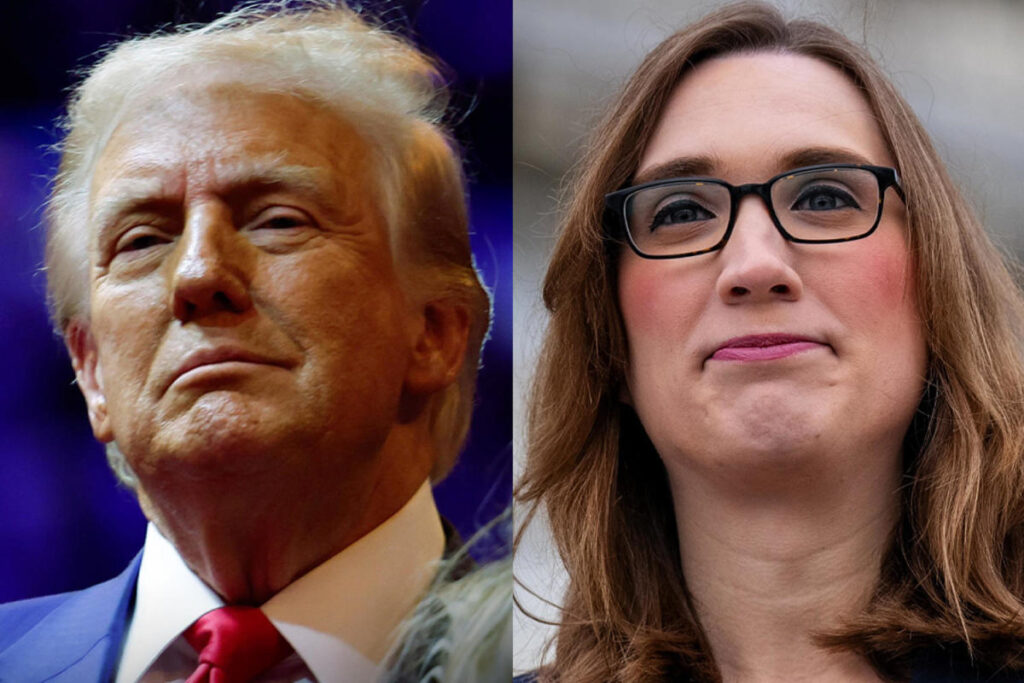In recent developments surrounding legislative matters regarding transgender rights, President-elect Donald Trump expressed agreement with incoming Congresswoman Sarah McBride, asserting that lawmakers should prioritize more pressing issues over disputes about bathroom accessibility for transgender individuals. This discourse arises amidst an ongoing debate ignited by Congresswoman Nancy Mace’s resolution, which seeks to restrict the use of single-sex facilities based on biological sex, a proposal seen as particularly targeting McBride. McBride, a Democrat from Delaware and poised to be the first openly transgender member of Congress, has condemned the resolution as a diversion from vital policy concerns.
In an interview with Time magazine, which recently named Trump its “Person of the Year,” the former president was prompted to address whether he concurred with McBride’s view that the political focus should shift away from bathroom usage to more relevant issues. Trump affirmed this sentiment, stating “I do agree with that.” However, he stopped short of addressing whether he believes transgender individuals should have the right to use the bathrooms that correspond with their gender identity. Current legal frameworks in various states highlight the contentious nature of the bathroom issue, with numerous places imposing restrictions on transgender restroom access.
The backdrop of this debate intensified when Mace reported being physically accosted at the Capitol, claiming the assailant was a “pro-trans man.” This incident led to renewed scrutiny of the environment surrounding transgender discussions in Congress. A witness to the event contested Mace’s portrayal of the encounter, indicating that the interaction they observed was consensual rather than aggressive. Such varying accounts emphasize the existing tensions surrounding transgender rights, particularly as they pertain to political figures on both sides of the aisle.
While Trump indicated a willingness to refrain from engaging deeply with the bathroom issue, he characterized the population of individuals involved as “very small” and noted the disparity between their coverage in media versus their actual numbers. Addressing the issue succinctly, he emphasized the importance of constitutional rulings and expressed a disinterest in entrenching the already polarized national dialogue. The Supreme Court’s current focus lies on other aspects of transgender rights, particularly health care access for minors, rather than the bathroom debate itself.
Trump’s campaign has often featured messaging that addresses transgender individuals; one advertisement reformulated Vice President Kamala Harris’s advocacy for gender-affirming surgery into a controversial narrative suggesting that such policies align against mainstream public interests. Trump defended his campaign rhetoric, asserting his commitment to represent the majority of Americans while simultaneously advocating for fairness and dignity for all individuals. He positioned himself as a defender of traditional values while expressing a desire for equitable treatment across diverse groups.
Lastly, Trump expressed a factor of uncertainty regarding his potential administrative policies on LGBTQ rights, particularly regarding Title IX protections introduced under the Biden administration. Although he did not overtly commit to specific actions, he stated an intention to closely evaluate all pertinent issues once in office as a means to address the societal divisions that have emerged. This exploration suggests a complex political landscape ahead as the incoming administration navigates the intricacies of transgender rights, public sentiment, and legislative priorities.

